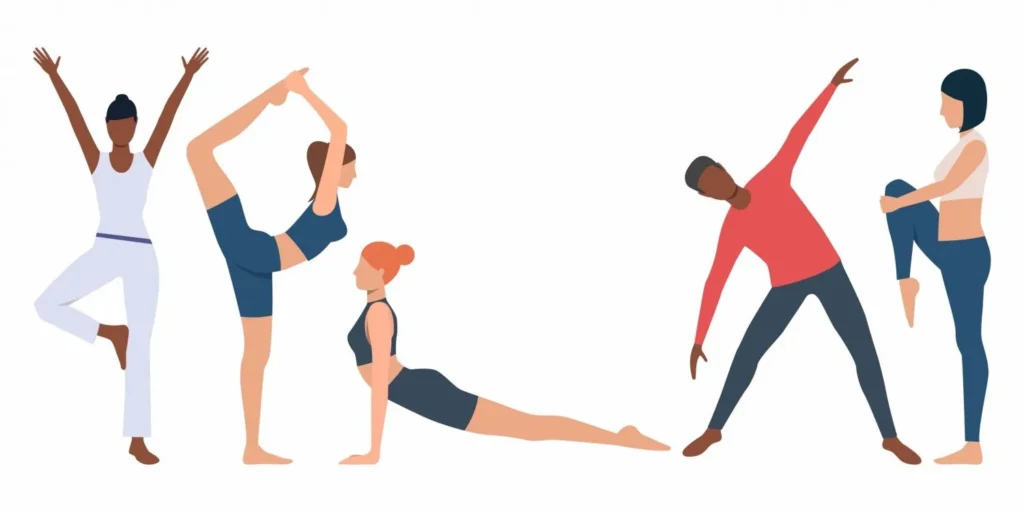We all know that staying active is important for our health, but did you know that being flexible might help you live longer? A recent study has uncovered an intriguing connection between how bendy we are and how long we might live. Let’s dive into this fascinating research and explore what it means for our health and longevity.

The Flexibility-Longevity Connection
In August 2024, researchers published a groundbreaking study in the Scandinavian Journal of Medicine and Science in Sports. This study revealed something quite surprising: there’s a strong link between how flexible a person is and their chances of living longer. The study looked at middle-aged men and women and found that those who were more flexible had a lower risk of dying from natural causes (excluding COVID-19).
What exactly do we mean by “flexibility”? In this case, the researchers used the terms “flexibility” and “mobility” to describe how well our joints can move through their full range of motion. Think about how easily you can touch your toes or rotate your shoulders – that’s what we’re talking about.
The Study: A Closer Look
Let’s break down what the researchers did:
- They gathered data from 3,139 people aged 46 to 65.
- Each person took a Flexitest test, which measures flexibility in seven different joints using 20 movements.
- The researchers then followed up with these people for about 13 years to see what happened.
The results were eye-opening:
- Men had a 10% death rate, while women had a 7% death rate.
- Women were generally more flexible than men, scoring 35% higher on the Flexitest.
- Both men and women who scored higher on the flexibility test had a lower chance of dying from natural causes like heart disease and cancer.
Why Might Flexibility Matter for Longevity?
While the study doesn’t prove that being flexible directly causes you to live longer, it does suggest a strong connection. But why might this be? Experts have a few theories:
- Overall Health Indicator: Flexibility often reflects a person’s general fitness and health. If you’re flexible, it might mean you’re active and taking care of your body in other ways too.
- Injury Prevention: Being more flexible can help prevent injuries, especially as we get older. Fewer injuries mean a lower risk of complications that could affect our health.
- Everyday Movement: Greater flexibility makes it easier to perform daily activities like climbing stairs or picking things up. This ease of movement can contribute to a more active, healthier lifestyle.
- Reduced Inflammation: Some experts believe that flexibility might be linked to lower levels of inflammation in the body, which is associated with various health benefits.
How to Assess Your Flexibility
Curious about your flexibility? Here are some simple tests you can try at home:
Sit and Reach Test:
- Sit on the floor with your legs straight out in front of you.
- Reach towards your toes, keeping your knees straight.
- The further you can reach, the more flexible your hamstrings are.
Apley’s Scratch Test:
- Reach one arm over your shoulder and down your back.
- Reach the other arm behind your back and up towards the other hand.
- If your fingers can touch, you have good shoulder flexibility.
Thomas Test:
- Lie on your back at the edge of a table or bed.
- Pull one knee to your chest.
- Let the other leg hang off the edge.
- If the hanging leg stays flat, it shows good hip flexibility.
Improving Your Flexibility
If you want to work on becoming more flexible, here are some strategies:
Static Stretching:
- Hold a stretch for 15 to 60 seconds without bouncing.
- Examples: seated butterfly stretch, neck stretches, or downward-facing dog.
Dynamic Stretching:
- Move through your full range of motion in a controlled way.
- Try arm circles, twisting lunges, or squats.
Yoga:
- Yoga is an excellent way to improve flexibility.
- It combines both static and dynamic stretching.
- It also helps with core strength, which is a bonus for overall health.
The Key Takeaway
While we can’t say for certain that becoming more flexible will guarantee a longer life, this study suggests it might play a role. What’s clear is that flexibility is an important part of overall fitness and health. By working on your flexibility, you’re likely improving your general well-being, which could contribute to a longer, healthier life.
Remember, it’s never too late to start improving your flexibility. Whether you’re in your 30s, 50s, or beyond, incorporating some simple stretching routines into your daily life could make a big difference. Start slow, listen to your body, and gradually increase your flexibility over time.
As with any new exercise routine, it’s always a good idea to check with your doctor before starting, especially if you have any existing health conditions. They can give you personalized advice on how to improve your flexibility safely.
In conclusion, while more research is needed to fully understand the link between flexibility and longevity, there’s no downside to working on your flexibility. It can improve your quality of life, make daily activities easier, and help you live a healthier life. So why not give it a stretch?
